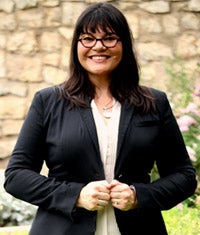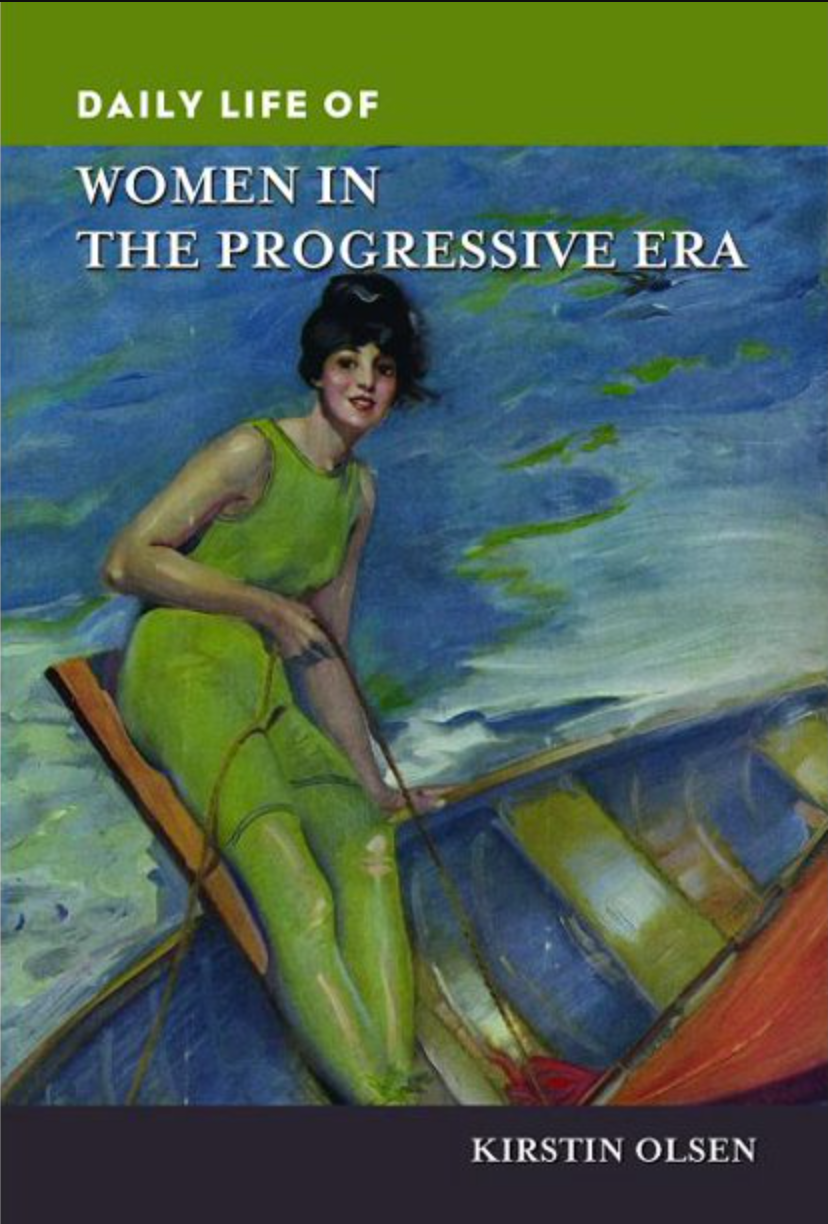Fall 2021 MA Program Newsletter
Posted by Gilder Lehrman Staff on Friday, 11/05/2021
This fall term marks the fourth year of the Pace–Gilder Lehrman MA in American History Program. During the past nine terms, we have offered 30 courses, admitted 1,500 students, and conferred 277 degrees––thanks to our cohort, faculty, and administrators. To highlight where we have been and where we are heading, we have created this MA Program newsletter. Published each term, it will keep you apprised of student and alumni accomplishments, upcoming courses, and Abraham Lincoln Scholarship recipients.
Student and Alumni Accomplishment
 Kim Denning-Knapp graduated in Spring 2019 and became a Clinical Assistant Professor of Social Studies Education for the UTeach-Liberal Arts Program at the University of Texas at Austin.
Kim Denning-Knapp graduated in Spring 2019 and became a Clinical Assistant Professor of Social Studies Education for the UTeach-Liberal Arts Program at the University of Texas at Austin.
“I appreciate all of the scholarship I was able to do through the program so very much. Thank you for giving teachers the opportunity to learn from so many incredible scholars!” –Kim Denning-Knapp
David Felsen was published in the Gazette of the American Friends of Lafayette in November 2020. Click here to read “The Curious Tale of the Man Holding the Horse in the Lafayette Memorial”.

Kirstin Olsen graduated in spring 2019 and published a monograph entitled Daily Life of Women in the Progressive Era in summer 2019.
“This program helped me to grow enormously as a writer, researcher, and teacher. Contact with so many eminent historians and with a program of graduate study gave me the confidence to communicate with my students about the practices of the field.” –Kirstin Olsen
Ron Poppie graduated in spring 2019 and has gone on to teach more advanced classes at Arcadia High School in Arcadia, Wisconsin.
“The MA program was great! After graduating I was able to offer a dual credit honors program at our high school. We are partnered with the University of Wisconsin-Oshkosh and the students in the dual credit program earn six history credits. Without the GLI MA program, we wouldn’t have been able to offer the course. It really changed history education in our district.”–Ron Poppie
In order to be included in a future highlight, email onlinecourses@gilderlehrman.org with the subject line MA Newsletter, and let us know what exciting things you are doing in the world of history or K–12 education.
Spring 2022 Course Offerings
American Colonies: A Continental History
Alan Taylor, Thomas Jefferson Memorial Foundation Professor of History at the University of Virginia
This course examines Spanish, French, Dutch, and British encounters with Native peoples of North America during the initial centuries of colonization: 1492–1800. The course combines the “Atlantic” approach to early America with a “continental” approach that accords dynamism and agency to Native peoples and enslaved African peoples in their relations with colonizers. The course defines colonial America broadly, extending beyond the British colonies of the North American coast to include New France, New Spain, and the West Indies.
The History of Childhood in America
Steven Mintz, the University of Texas at Austin
This course places contemporary educational, legal, policy, and psychological thinking about childhood and current concerns about children’s well-being into a sweeping historical perspective. The course will examine childhood both as lived experience—shaped by such factors as class, ethnicity, gender, geographical region, and historical era—and as a cultural category that adults impose upon children. The class will place a special emphasis on public policy. Adoption, child abuse and neglect, children’s rights, disability, juvenile delinquency, schooling, and social welfare policies are among the policy topics that this course will address.
Social Change in the Civil War Era
Catherine Clinton, the University of Texas at San Antonio
The multiple meanings to emerge from this dynamic era continue to ripple across the decades and create a powerful legacy into the twenty-first century. This course will be divided into thematic and chronological exposition. The first section will examine the origins of the Civil War, with special emphasis on the role of slavery and antislavery as factors of disunion. Then we can look at aspects of the war itself, emphasizing the civilian experience, looking particularly at the role of the social divisions—men and women, Whites and Blacks, free and enslaved, natives and immigrants with the republic in crisis. The emancipation of the enslaved was the dramatic centerpiece of the conflict, and thus the Civil War as a war of liberation and a war of reconstruction must be confronted. Finally, we must examine the contested memory and legacy of the Civil War, in both commemoration and popular culture.
Chinese in the United States
Madeline Hsu, the University of Texas at Austin
Considering US history through the lens of Chinese experiences emphasizes the national development of ideas and practices concerning immigration controls, rights to citizenship, multiracial societies, forms of multicultural integration and assimilation, and the relationship of the Constitution to varying conceptions of equality. Chinese as a race were the first targets of enforced immigration restrictions. As such, they have played key roles as the United States determined its powers and priorities in enacting immigration controls and its visions for democracy, along with the underlying racial ideologies and conceptions of national belonging.
This course offers an overview of the history of Chinese in America with an emphasis on Chinese American identity and community formations under the shadow of the Yellow Peril. Using primary documents and secondary literature, we will examine structures of work, family, immigration law, racism, class, and gender in order to understand the changing roles and perceptions of Chinese Americans in the United States from 1847 to the present.
Making Modern America: Business and Politics in the 20th Century
Margaret O’Mara, Howard and Frances Keller Endowed Professor, University of Washington
How has the past century of American history shaped the political and economic landscape of the early twenty-first century? What is the broader context and historical backstory of contemporary political and social movements, business practices, and global flows of people, capital, and ideas? How can we use historical knowledge and the tools of historical analysis to better understand and address present-day challenges? With these questions in mind, this course explores key moments and people in the history of the United States from the end of World War I to the present.
Course organization is both chronological and thematic, performing deep, evidence-based study of particular events and people in recent US history to explore the evolving role of government, grassroots activism and fights for individual and group rights, partisan political change, technology as a product and shaper of society, changing patterns of production and consumption, migration and immigration, financial systems and global markets, and America’s changing role in the world.
Fall 2021 Abraham Lincoln Scholarship Recipients
We are pleased to announce that thanks to the generosity of an external funder, we are now offering 100 Abraham Lincoln Scholarships of $500 each to be distributed throughout the academic year. Applications for the 33 spring term Abraham Lincoln Scholarships will open soon. The recipients of fall scholarships are listed in the full newsletter here.
Learn more and apply to the MA in American History Program here.